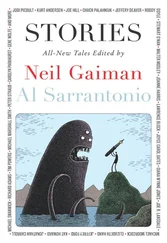Mercedes Lackey - Changing the World - All-New Tales of Valdemar
Здесь есть возможность читать онлайн «Mercedes Lackey - Changing the World - All-New Tales of Valdemar» весь текст электронной книги совершенно бесплатно (целиком полную версию без сокращений). В некоторых случаях можно слушать аудио, скачать через торрент в формате fb2 и присутствует краткое содержание. Жанр: Старинная литература, на английском языке. Описание произведения, (предисловие) а так же отзывы посетителей доступны на портале библиотеки ЛибКат.
- Название:Changing the World: All-New Tales of Valdemar
- Автор:
- Жанр:
- Год:неизвестен
- ISBN:нет данных
- Рейтинг книги:5 / 5. Голосов: 1
-
Избранное:Добавить в избранное
- Отзывы:
-
Ваша оценка:
- 100
- 1
- 2
- 3
- 4
- 5
Changing the World: All-New Tales of Valdemar: краткое содержание, описание и аннотация
Предлагаем к чтению аннотацию, описание, краткое содержание или предисловие (зависит от того, что написал сам автор книги «Changing the World: All-New Tales of Valdemar»). Если вы не нашли необходимую информацию о книге — напишите в комментариях, мы постараемся отыскать её.
Changing the World: All-New Tales of Valdemar — читать онлайн бесплатно полную книгу (весь текст) целиком
Ниже представлен текст книги, разбитый по страницам. Система сохранения места последней прочитанной страницы, позволяет с удобством читать онлайн бесплатно книгу «Changing the World: All-New Tales of Valdemar», без необходимости каждый раз заново искать на чём Вы остановились. Поставьте закладку, и сможете в любой момент перейти на страницу, на которой закончили чтение.
Интервал:
Закладка:
Not Marya. Marya drew her own. The sketch she’d been sent had been no bigger than her hand. The cartoon was twice the length of the loom, and that was only half of it. She’d flip it for the other half, the mirror image of the stag she was working on now, and carefully sew the two halves together for the finished whole. And an impressive backdrop to a head table that would be, too.
But she was not thinking of that. She was thinking of the Heralds in the village square and wondering angrily how long they were going to be in the village. Not long, she hoped. Because she had no intention of leaving her house while they were here, or she just might be tempted to—
She froze at the polite knock at her open door.
Surely not.
She turned slowly, but the reflection of white in the pots on the kitchen wall told her who it was before she actually finished the turn.
“Marya Bannod?” the older of the two Heralds asked.
She nodded curtly, unable to trust herself to speak.
“We’d like to ask for your hel—” he began.
She exploded. “Oh, you’ve a lot of nerve coming here and asking for my help!” she hissed, hands balled into fists at her side. “Whatever it is, you can damned well just go and take care of it yourselves, you with your great minds and fine ways! Get off my stoop!”
And she slammed the door in their astonished faces.
Then she let out a breath. That had felt good. Not as good as flinging some kitchen things at them, but good. Now they’d go away, and get on their white horses and—
There was another knock.
Surely not—
She opened it. They were still there.
Briefly, she entertained a fantasy of snatching up the beater from the loom and driving them down the street with it, cudgeling their heads and shoulders the whole time. But . . . no. These particular Heralds hadn’t done her any harm.
Just Heralds in general.
“You’re not wanted here,” she said, folding her arms over her chest and glaring at them. “Get out.”
“Perhaps you didn’t—”
“You think I’m feebleminded?” she snapped. “I understood perfectly. You’ve got some sort of tangle. You think I can sort it out for you and save you some time and effort. No. I realize that you don’t hear that very often. Perhaps you should; it would do you good. No. What part of no do you not understand?”
She slammed the door again. This time when the knock came, she didn’t answer it. Instead, she went to her loom and began work on the tapestry, singing out the color changes as loud as she could to a tune of her own invention. It helped her concentrate, and it soothed her nerves a little.
She heard the sound of voices at her door; four of them. She sang louder. Eventually the talking stopped; then there were footsteps going away.
She kept working.
She didn’t stop until it became too dark to distinguish between different shades of the same colors. By then her arms were weary, and her back was stiff. She didn’t usually work that long at a stretch on the loom without taking breaks, but she had been so angry that she hadn’t dared stop, or she was sure she would have smashed something.
She had started a fine pea soup with a ham bone in it this morning; it would be ready now. She’d wanted fresh bread to go with it but . . . oh well. She’d just have to bake her own bannocks or griddle cakes until the Heralds left. She was not leaving her house, and they couldn’t make her.
The soup was perfect. She ladled herself out a bowl, set some tea to steep, and was about to sit down when—
There was another knock at the door, and her anger flared like lint caught in a fire. She snatched up her frying pan and stalked to the door, flinging it open. “I told you—”
“Now, now Marya—” The mayor of the village, Stefan Durst, held up both hands placatingly. “Don’t go hitting me with that. I need the few wits I have left.”
She snorted, but she let the hand with the pan in it fall to her side. “I suppose you’ll be wanting to come in and explain to me why I need to do what their lordships think I should.”
“Well . . . in a word, yes.”
“You can come in. But I’m having my supper, and I’m not feeding you.” She glared at him. “You eat better than I do.”
Stefan just sighed and looked put-upon. She moved out of the way to let him in but closed the door firmly behind him, lest some Herald think he could sneak in when she wasn’t looking.
She sat back down at her tiny table and began to eat her soup. Stefan looked about for some place to sit, and eventually he took the loom bench. Stefan, a balding, plump man with mouse-colored hair, looked down at his well-groomed, clean hands.
“Marya, they’re Heralds,” he said plaintively.
“I know they’re Heralds,” she snapped. “I’m neither blind nor feebleminded.”
“They’ve got the Queen’s mandate.” There was a whine to his voice. He’d been whiny as a child, and he hadn’t lost the habit.
“They can have the Queen’s crown and underwear for all I care. I’m not helping them.” She put her spoon in the empty bowl and glared at him again. “And you, of all people, should know why. What have Heralds ever done for me but make my life a misery?”
He moved his hands a little, helplessly. “Yes, but—”
“Do you have any idea what it was like to grow up without a father? To have every other child in this village mock me by telling me he’d run off to rid himself of me and mother? To watch my mother write letter after letter that was never answered, and go from hopeful to hopeless to bitter?” She’d held this pent up for too long. “And then, then, when a man from this village takes a shine to me, and there’s talk of weddings, along comes another one of those damned white horses, and there am I left in the rain like my mother, and the letters start to say ‘You wouldn’t understand,’ and then they stop coming altogether.” The very words were bitter on her tongue. “At least I wasn’t left pregnant and alone. Just alone.”
She got up and washed the bowl and spoon in the sink.
“Well . . . that’s what they’re here about. Danet, that is.”
She turned, slowly. He was twisting those too-clean hands together and staring at them. With guilt, she thought.
“What do you mean, they’re here about Danet?” Her voice was dangerously soft.
“All I know is what they told me,” he replied, cringing a little. “They’re here about Danet, and they need your help. That’s all.”
“You can pick yourself off that bench and you can march yourself back to them, and you can tell them from me that Danet Stens can rot in hell for all I care, and there’s an end to it!” She was unaware that she had picked up her sharpest kitchen knife and was holding it, until Stefan’s eyes went to it, and he gave a little yelp. She slapped it down on the table. He jumped. She pointed with her chin. “The door’s that way.”
He took the hint and scuttled out.
She moved her chair closer to the fire and took up her knitting. It was soothing; she never did patterns and never had more than one color on the needles, although she would use up all the little ends of her weaving by making them into crazy-colored knitted blankets and scarves. After all the intricate pattern weaving she did during the day, it was restful to be doing something with no pattern and no counting except to cast on. She made smocklike sweaters out of rectangular shapes that needed only to be sewn together. In winter she could layer on as many of those as she liked to keep warm. It wasn’t as if anyone cared what she looked like.
It wasn’t as if she wanted anyone to. One heartbreak in a lifetime was enough.
Читать дальшеИнтервал:
Закладка:
Похожие книги на «Changing the World: All-New Tales of Valdemar»
Представляем Вашему вниманию похожие книги на «Changing the World: All-New Tales of Valdemar» списком для выбора. Мы отобрали схожую по названию и смыслу литературу в надежде предоставить читателям больше вариантов отыскать новые, интересные, ещё непрочитанные произведения.
Обсуждение, отзывы о книге «Changing the World: All-New Tales of Valdemar» и просто собственные мнения читателей. Оставьте ваши комментарии, напишите, что Вы думаете о произведении, его смысле или главных героях. Укажите что конкретно понравилось, а что нет, и почему Вы так считаете.











